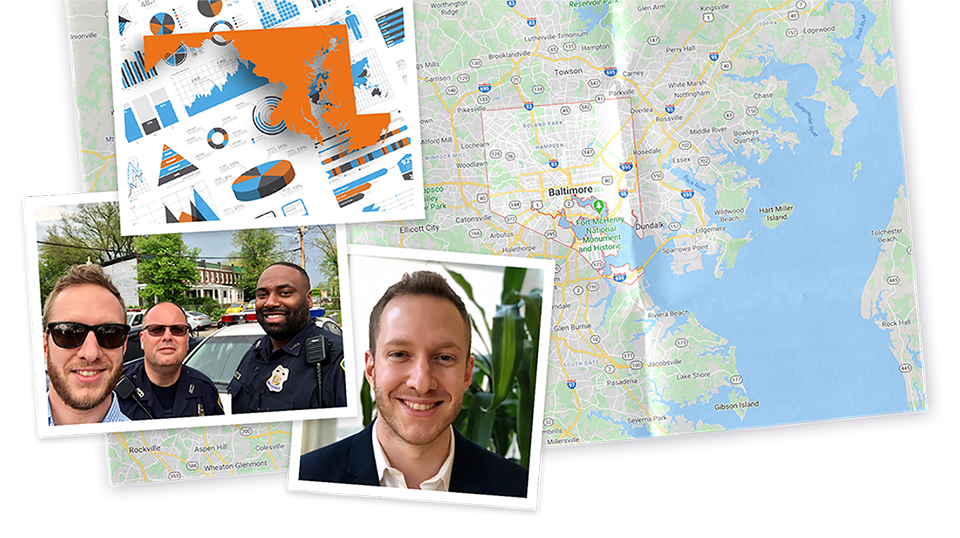Excerpted from the Harvard Gazette series, To Serve Better.
Whenever Justin Rose (MUP ’18) sits in a community meeting, he takes note of the people who aren’t speaking. They are generally the ones who haven’t yet been invited to offer their opinions — and they are the ones Rose wants to hear from most.
“Often the people who hold the knowledge or insight that can unlock a creative solution are overlooked,” said Rose, who works as a performance analyst in the Baltimore mayor’s office of Performance and Innovation. “I seek out those people and bring them into the process; their experiences are essential.”
That interest in engaging residents and finding ways to bring them into the conversation sits at the heart of the way Rose views his work. The North Carolina native spent time in Boston working as a community organizer with low-income and elderly populations, and the path to his current job began at the Bloomberg Harvard City Leadership Initiative while studying at the Harvard Graduate School of Design.
“There can be a big disconnect between policymakers, the decisions they make, and the lived experiences of the people who are most impacted by those decisions,” said Rose. Because of this, he spends his time in the community working to bridge that disconnect by helping residents track the efforts of city departments in their neighborhoods.
Rose emphasizes that his role is equal parts organizing and data analysis. Relationship building, both in the community and with his government colleagues, is what he points to as keys to success.
Often the people who hold the knowledge or insight that can unlock a creative solution are overlooked.
Rose’s Performance and Innovation team just launched CleanStat, a component of Mayor Jack Young’s “Clean It Up!” campaign to tackle the city’s persistent trash and litter problem. CleanStat takes the trove of data the city has and turns it into visual representations of targets and successes, and it allows residents to easily sort through that data to see progress in their own neighborhoods.
“The dashboard [we developed] has to serve multiple purposes: inform the public; help departments manage their business, and serve as a quality check,” Rose said. “We have so much [data] that can be used to communicate how, where, and why we deliver services.”
Something he appreciates about the people who serve in city government is their passion and commitment; they live the issues that they go to work each day to address, he noted.
It is a personal connection he not only admires but tries to emulate by getting out into the community, asking questions, and listening.
“With every data set I work with, I try to pop the hood and find out specifically how the data is generated and what the story behind it is,” he said. “Doing this, you get to the truth of the matter really quickly.”
As he continues working on the mayor’s ambitious agenda and the essential priorities of the community, Rose says his goal is to help city government slow down and recognize the knowledge that exists in the community as they work to implement change.
Justin Rose (MUP ’18) is using his skills as a community organizer and his experience working with complex data sets to help Baltimore solve their most pressing problems, all while preserving the city’s rich history.
